
Rebuilding a better society
There’s no denying that the pandemic has been tragic, taking hundreds of thousands of lives around the world. But it has also inspired changes that will ultimately make the world a better place. From better hygiene that will reduce the spread of disease in general, to businesses making it easier for employees to balance work and life, to a move to address the many inequities in our society, to more positive attitudes about life, the COVID-19 crisis will have a lasting impact. According to an August poll from the Pew Research Center, just over half of U.S. adults (51 percent), expect their lives to remain vastly changed after the pandemic—this is even higher (57 percent) among the future generation, young people 18 to 29. And like a phoenix rising from the ashes, our world will be better for many of these everyday habits that could (and should) change forever after coronavirus.

Work from home will be more acceptable
Companies are also finding better ways to serve employees by allowing more work from home options. “We are all learning that many businesses can in fact thrive with a remote workforce,” says Josh Knauer, business strategist and co-founder of JumpScale. This will forever change the workplace, with offices taking a much smaller role. “If you’re unhappy with how inefficient office environments can be, remote work is a game-changer,” says Dave Nevogt, cofounder of Hubstaff. Commutes, he says, are often “wasted” time when you could be getting more work done or doing other things you enjoy more. “And the worst part is that employees start to resent the company for it,” he says. “They know that they can get the same work done from home, but the company is forcing them to come into the office. Companies that allow remote work actually get the opposite effect. They gain goodwill because they understand the value of freedom and flexibility.” This is exactly what you need to be successful working from home.
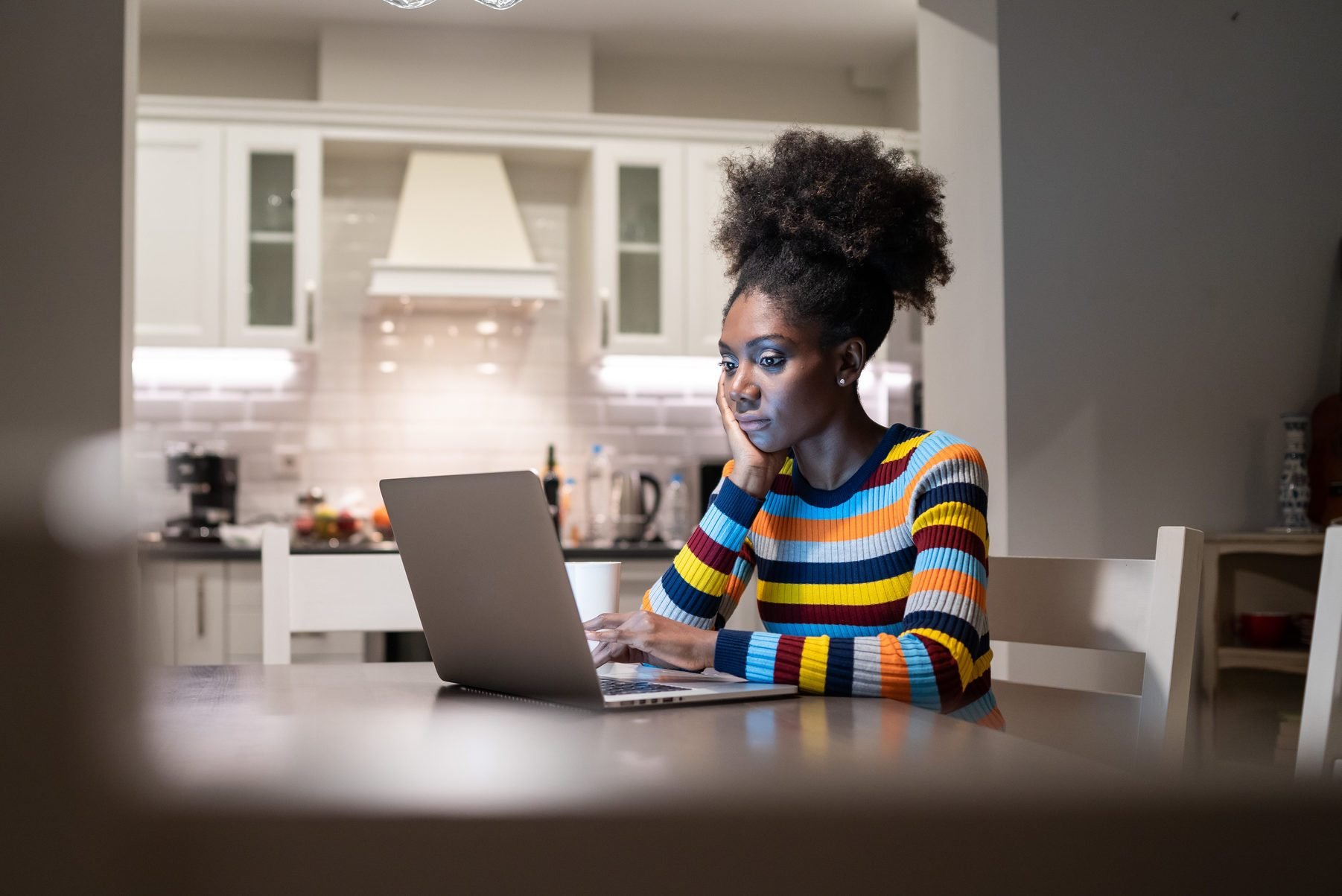
A more flexible work schedule
Along with working from home, companies are realizing the benefits of letting employees work on their own schedule. “We often hear from our own team members how important it is that they can structure their workdays around their needs,” Nevogt says. “Some enjoy being able to walk their kids to the bus stop while others are able to go to midday appointments, or get out for walks or other activities in the afternoon. There’s no question that it’s more flexible than an office setting. This just adds to the benefit of being able to work from an environment that’s set up for you.”
Knauer says that along with more quality time with family and less commuting time, allowing employees to work on a schedule that better suits their lives can lower stress and anxiety—which can benefit the company as well. “This flexibility can be a strategic way for businesses to help ease stress and avoid burnout of their workers,” he says. Happier employees are also more productive.
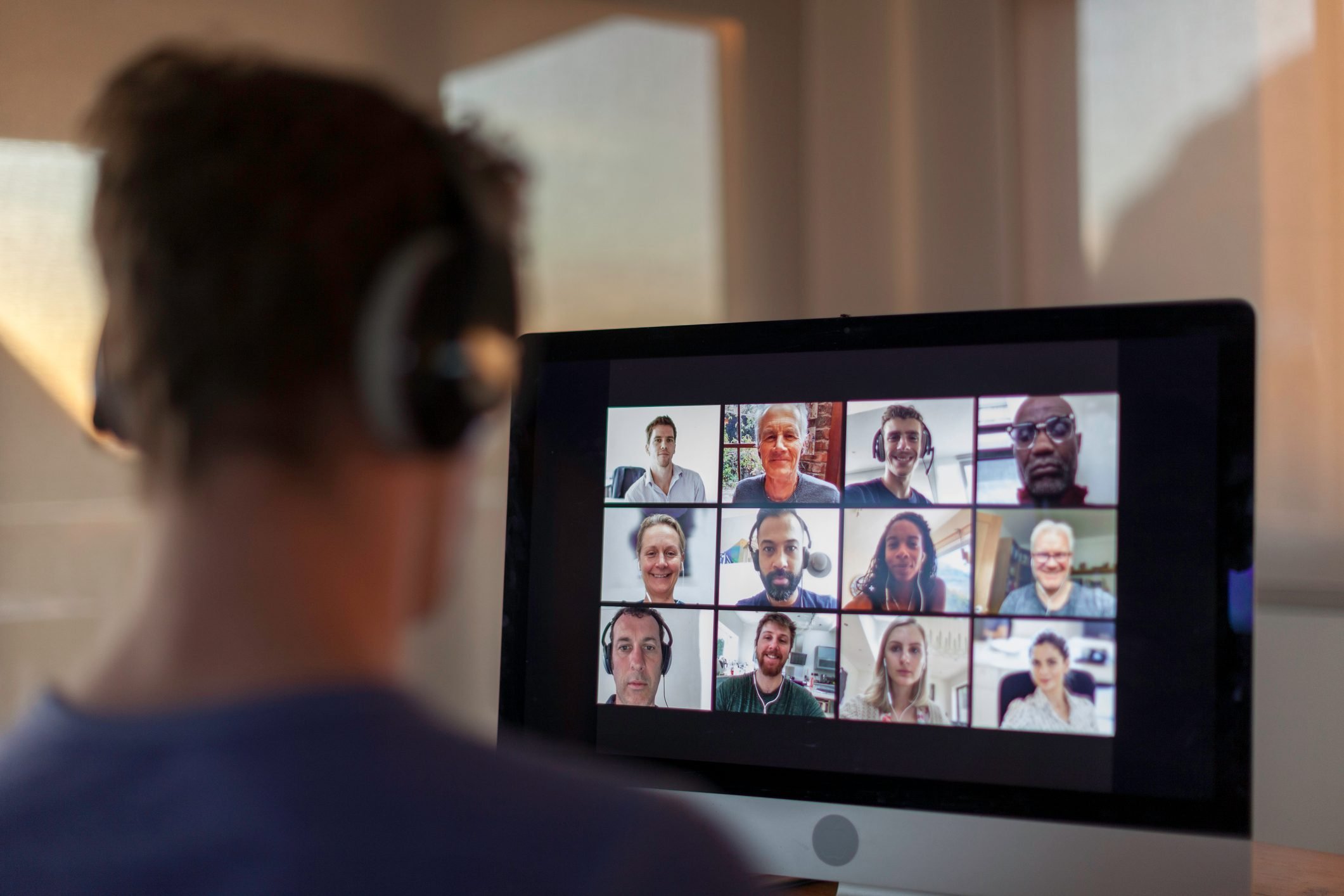
A more global, diverse workforce
Remote work also provides another advantage for companies by not having to limit their staff to a geographic location. “By allowing employees to work from home, businesses are able to expand their talent pool to anywhere in the world, and find people who are the right fit,” Nevogt says. “Going remote provides both business owners and employees rewarding, well-paying work without sacrificing their lifestyle or values. They can have the best of both worlds.” The only thing that really matters is the work itself, and how the team works together, he says. Employers will have to make sure employees and managers are able to effectively connect and communicate, so the demand for the new types of equipment and software remote workers need will drive innovation in those areas, Knauer says. Find out the 13 golden rules for working from home.
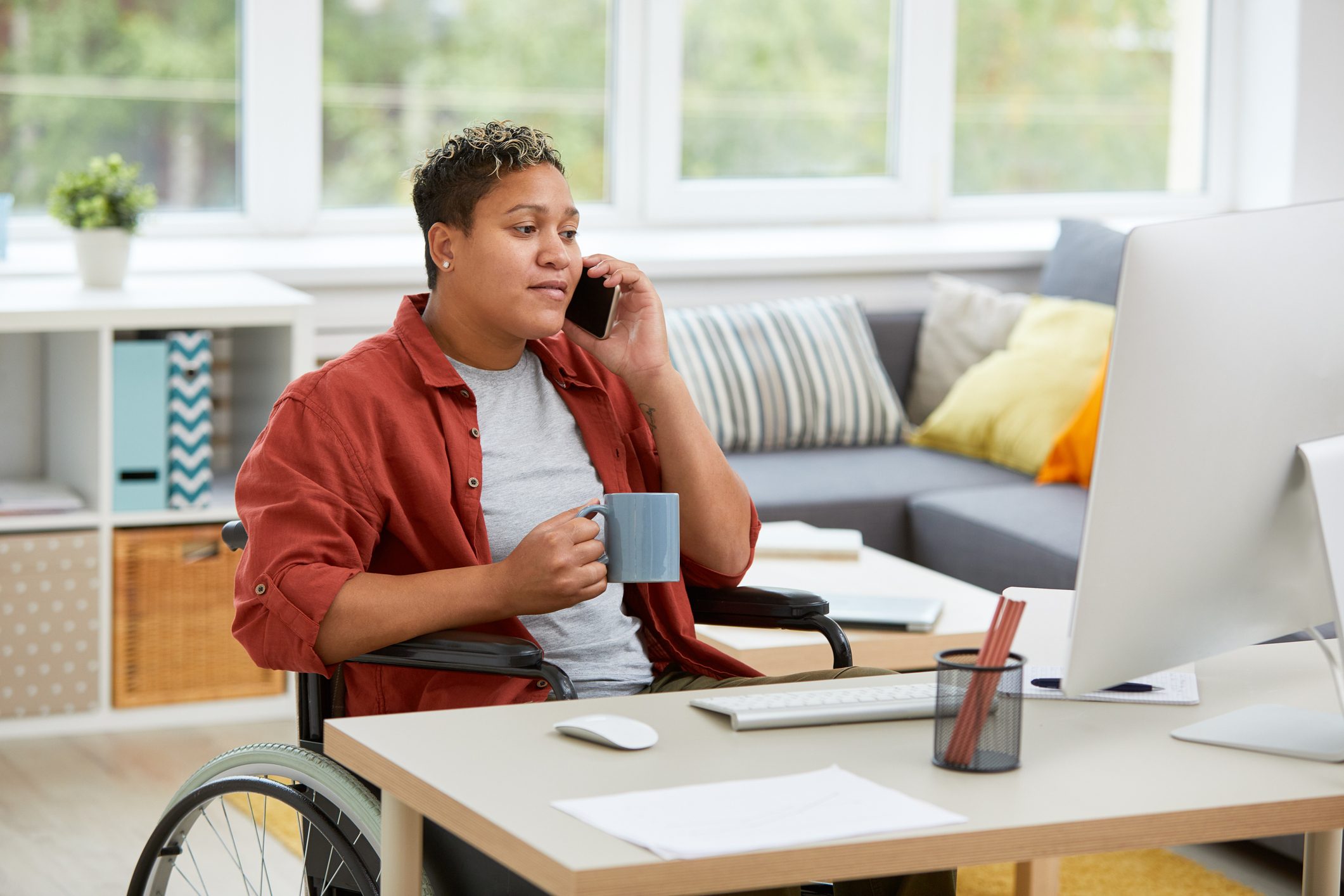
More accessibility for disabled people
For people with physical disabilities, chronic pain conditions, or other ailments, more home-focused jobs and services will be particularly helpful. “These shifts have increased the availability of products and services for those for which it may not be possible to shop in person in a store,” Knauer says. Plus, “workers with disabilities tend to find working from home to be a less stressful endeavor because they avoid the stresses associated with commuting, and are able to work more comfortably from their home environment.” Nevogt says working from home can be a way to level the playing field and shift the focus to results, where it should be.
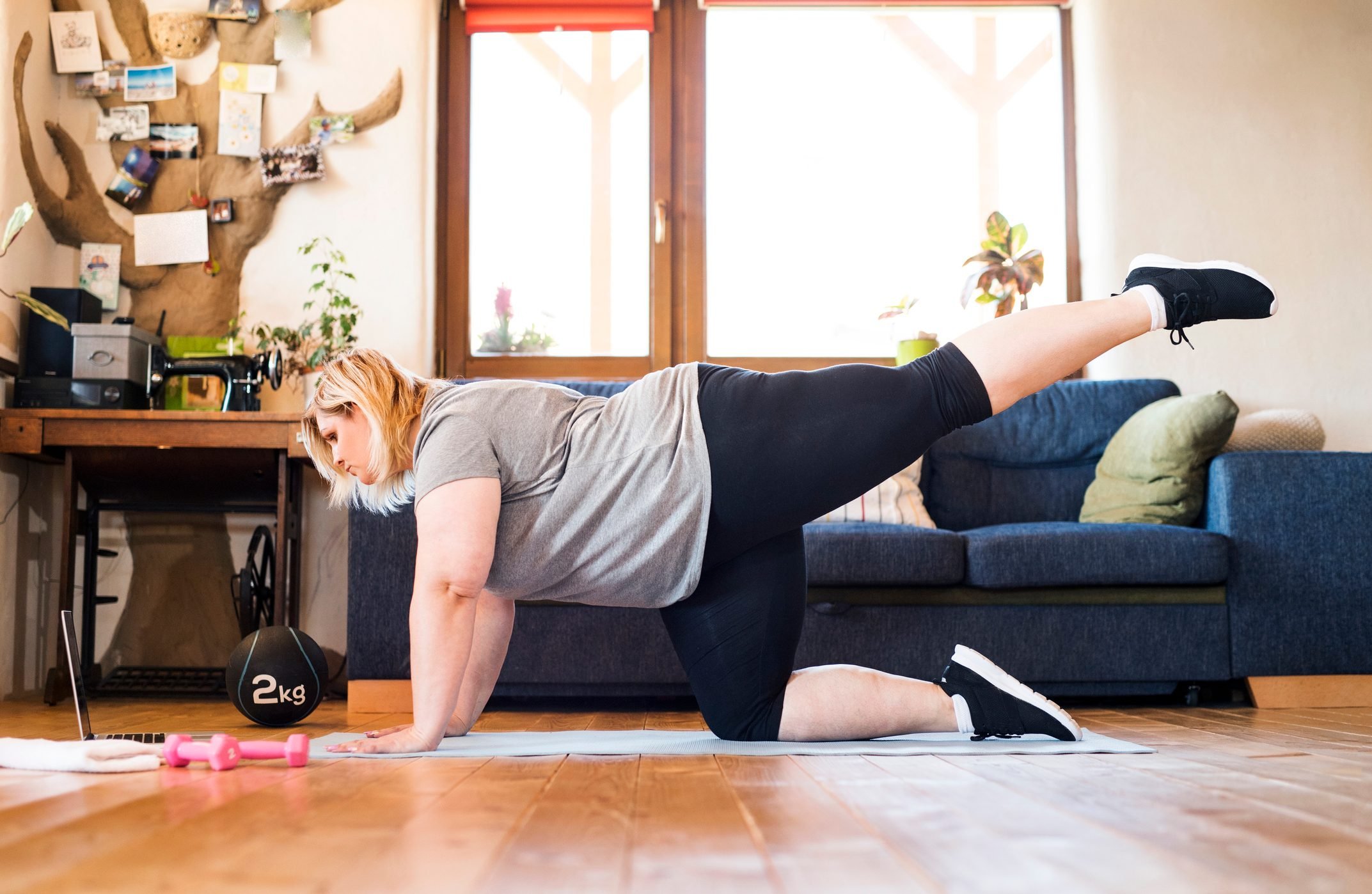
Healthier lifestyle habits
More flexibility and reduced commuting mean people can find more time to exercise as well—even if it’s working out at home rather than at the gym. One survey showed the number of people who never exercise decreased since the pandemic began. And although restaurants have opened back up, those who discovered the joy of cooking during quarantine will likely continue to make healthy, home-cooked meals for their family. “I think many people have made positive changes during this pandemic, from cooking more and getting projects done around the house,” says Jen Caudle, DO, a family physician and associate professor at Rowan University. Doing house projects or other home-based activities like gardening can also burn calories.
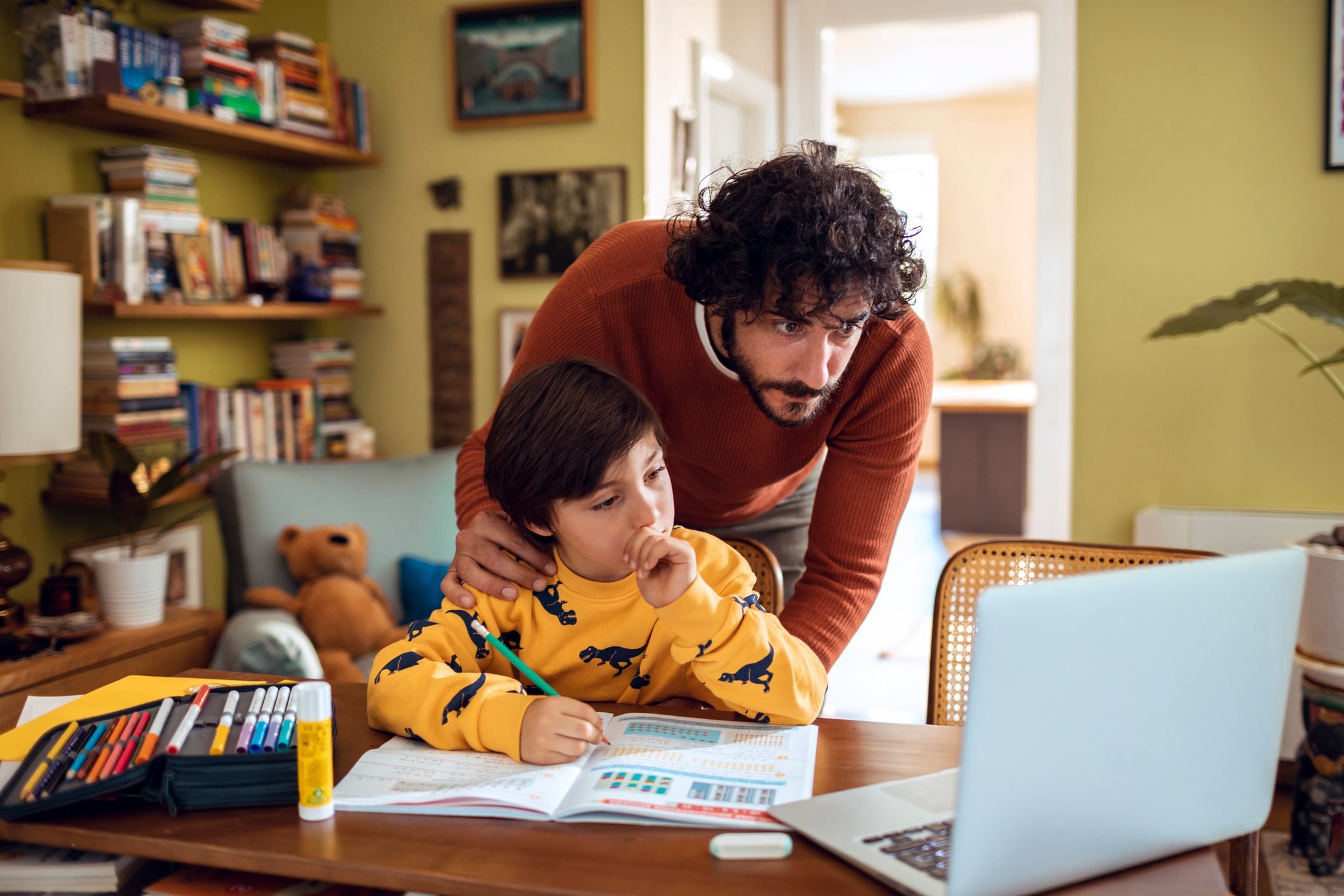
A recognition that the education system needs an overhaul
While remote learning options offer some parents more flexibility, the pandemic has also highlighted the socioeconomic gap between families who have the time, or even the Internet access, to give to their child’s education—and those who don’t. The debate over reopening schools also brought to light how essential teachers are, how underfunded schools are, how pointless standardized testing is, and the enormous need for better childcare options for working parents. “There are deep and abiding inequities in our system of schooling taken as a whole,” says Barbara Stengel, PhD, professor emerita of secondary education at Vanderbilt University. “Our recognition of these lessons opens the door to some significant reinvention of what we think education is for and how we do it, if we can muster the courage and energy to take advantage of the opportunity.” These are the 10 things you may not see in schools after coronavirus.

Shedding light on healthcare racism
Another systemic inequity has come to light during the pandemic in that Black and Hispanic people are more likely to be affected by COVID-19, as the Centers for Disease Control and Prevention notes. There are many reasons for this, including that racial and ethnic minorities are more likely to live in crowded urban areas where the virus can spread; they are more likely to have other conditions that make COVID worse, like diabetes, heart disease, or obesity; and they may have jobs with poor insurance benefits or the ability to take sick time off. An article in The New England Journal of Medicine points to long-standing racism built into the very structure of the healthcare system that may prevent Black and Brown people from getting the care they need. Although there isn’t yet a solution, a growing recognition of this major problem is the first step to a new healthcare system that offers better coverage for all.

The possibility of improving the environment
In looking for “good news” amidst the pandemic, you might have seen articles about wildlife returning to some areas, pollution clearing up, or water becoming clearer. Unfortunately, any beneficial environmental effects of lockdown might not last if we return to old habits. “Shortly after the lockdown began in Wuhan, carbon emissions dropped around 25 percent and the resulting reduction in air pollution was visible from space,” says Sean Young, PhD, a medical geographer and assistant professor at the University of Arkansas for Medical Sciences who has done research on the subject. “The improvement in air quality was rapid and dramatic, but it was also, sadly, temporary. The pandemic showed us that major improvements in air quality can occur quickly, even in large metropolitan areas, but it also showed us they are difficult to sustain.” However, seeing the possibilities may serve as motivation for better conservation of the planet.

More local, sustainable travel
The environment might also benefit if we keep up our habit of less air travel and more sustainable, local travel. “The last few months in the travel industry were characterized by the renaissance of ‘drive-to’ domestic, spontaneous vacations, and the comeback of the U.S. road trip,” says Omer Rabin, managing director at property management startup Guesty. “Domestic and drive-to destinations will continue to be a hit as they require fewer logistics than an international itinerary that involves flights, country-specific restrictions, and more. Booking local and domestic stays is much less stress-inducing for many.” The beginning of the pandemic saw people fleeing cities for the country; now, city travel is back in business, he says, as people redefine what a vacation means. Here’s what travel could look like after coronavirus.
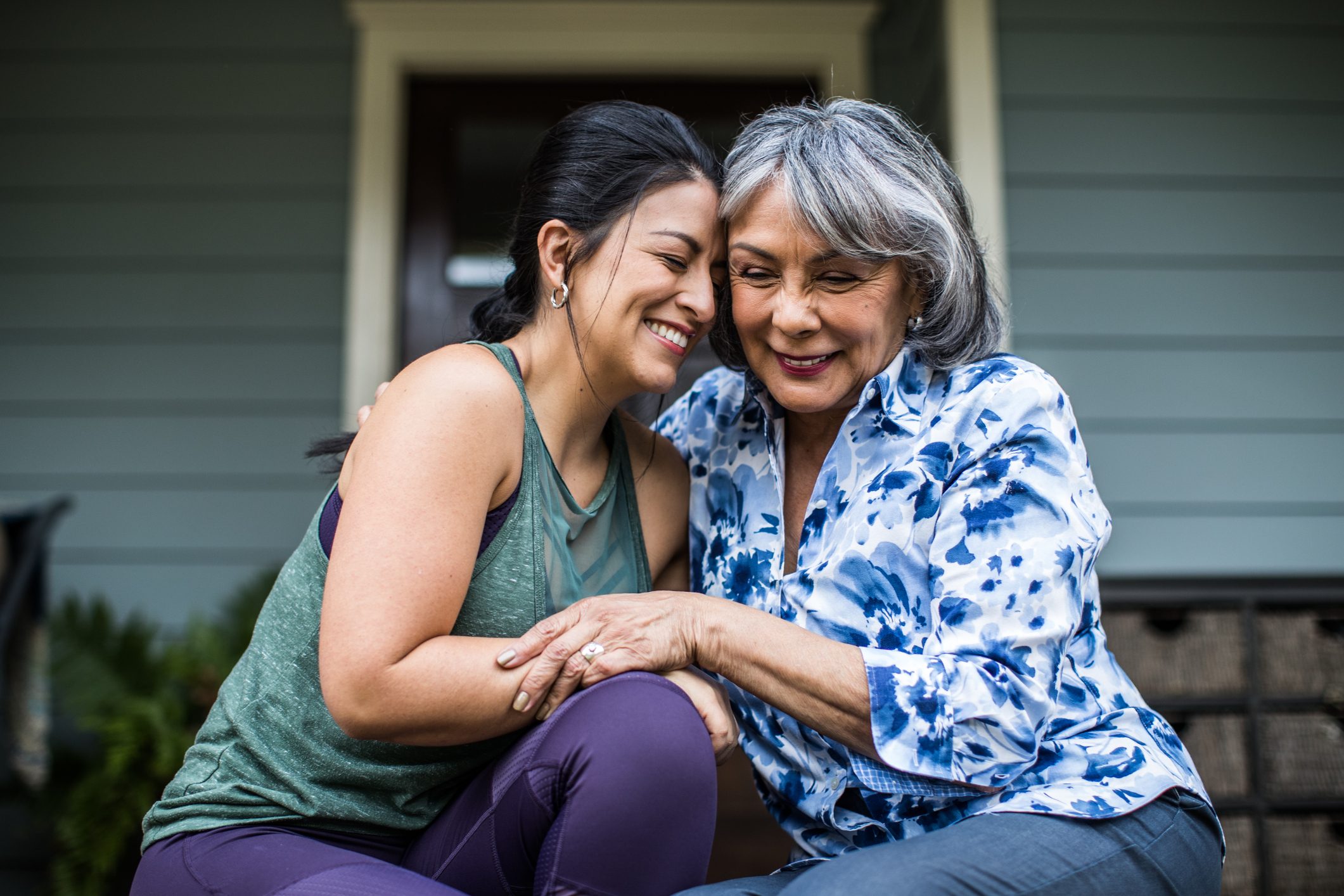
Stronger family connections
During lockdown, families created bonds that are likely going to remain strong, particularly as more people work from home permanently. “Since you’re home anyway, there’s no excuse not to have dinner together, talk to each other at breakfast, or joke as you’re grabbing snacks from the fridge in-between school classes and work meetings,” says Michele Bates, MSSW, co-founder and CEO of Transform Through Therapy. Families are also returning to classic activities like game nights, family crafts, movie nights, and outdoor nature adventures like hiking and biking. “All of these activities are tuning in, not zoning out,” Bates says. “They are entertainment that brings people together and opens possibilities of fun conversations—not about homework or house chores. They also give you opportunities to get to know each other, and create a lot of openings for connection on a deeper more meaningful level, which has been missing in many homes since smartphones entered the picture.” These are the secrets of the happiest families.

More “living in the moment”
The COVID crisis has led people to seize the opportunity to return to a more present, focused life, an attitude that could lead to a slower pace of living even after the crisis is over. “Many have discovered a reignited passion to have spontaneity and fun in their lives and search out ‘simple’ joys again,” Bates says. “We had no more excuses to learn that skill we’ve put off—the top ones seem to be languages, crafts, and education—or create art or music for the first time in years, or even just read that pile of books we’ve had next to our bed for who knows how long. Many people are remembering how to just ‘be’ in the moment and enjoy life.”

A greater connection with nature
For many people, getting outside for walks, biking, and hikes has become one of the best socially distanced opportunities for exercise, as well as for spending time with family—and the effects could be long-lasting. “Everything from neighborhood parks to national forests have been go-to spots for local families,” says Bates. “This summer since most public pools were closed many of my patients were taking their kids to the lake for swimming and kayaking instead or down to the pond to fish. There are studies to show how much being in nature—and away from electronics—can improve the quality of our mental health.” Because these nature-focused activities make us feel good, we’ll likely continue them even when the pandemic is over.
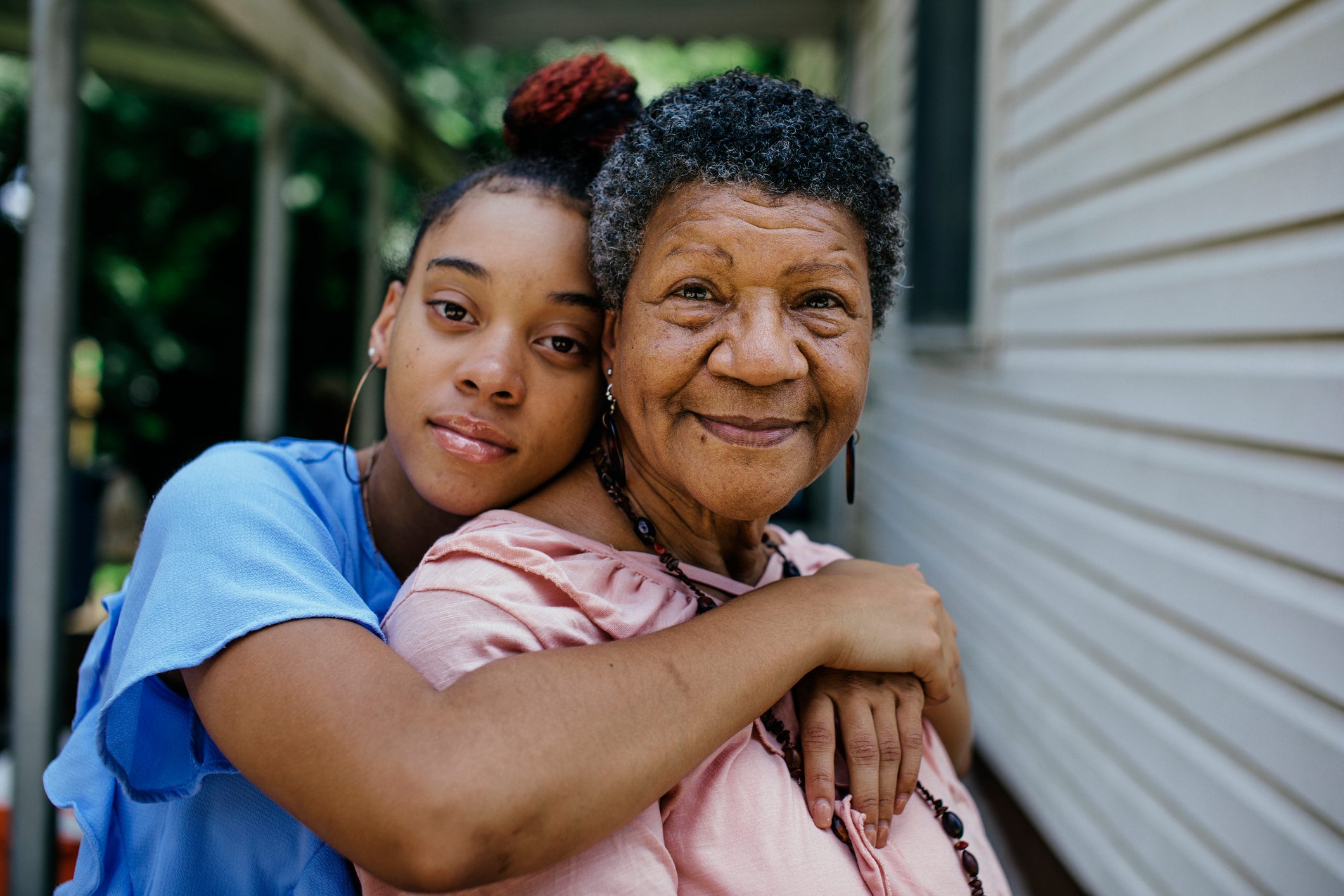
More appreciation and gratitude for life
This time of suffering and death brought a recognition that life is fragile, something to be cherished and not taken for granted. “COVID has created a loss on so many levels—our traditions, habits, sense of safety, community connectivity—that it has forced us to look deeply at what we have been doing daily, why it matters, and what we really want to be spending our time on ‘when things go back to normal,'” Bates says. “This active seeking of insight and answers has caused many individuals to really appreciate what they have, and in their longing for what’s missing, find gratitude for their opportunities and their lives.” These 16 powerful quotes remind you to be grateful every single day.
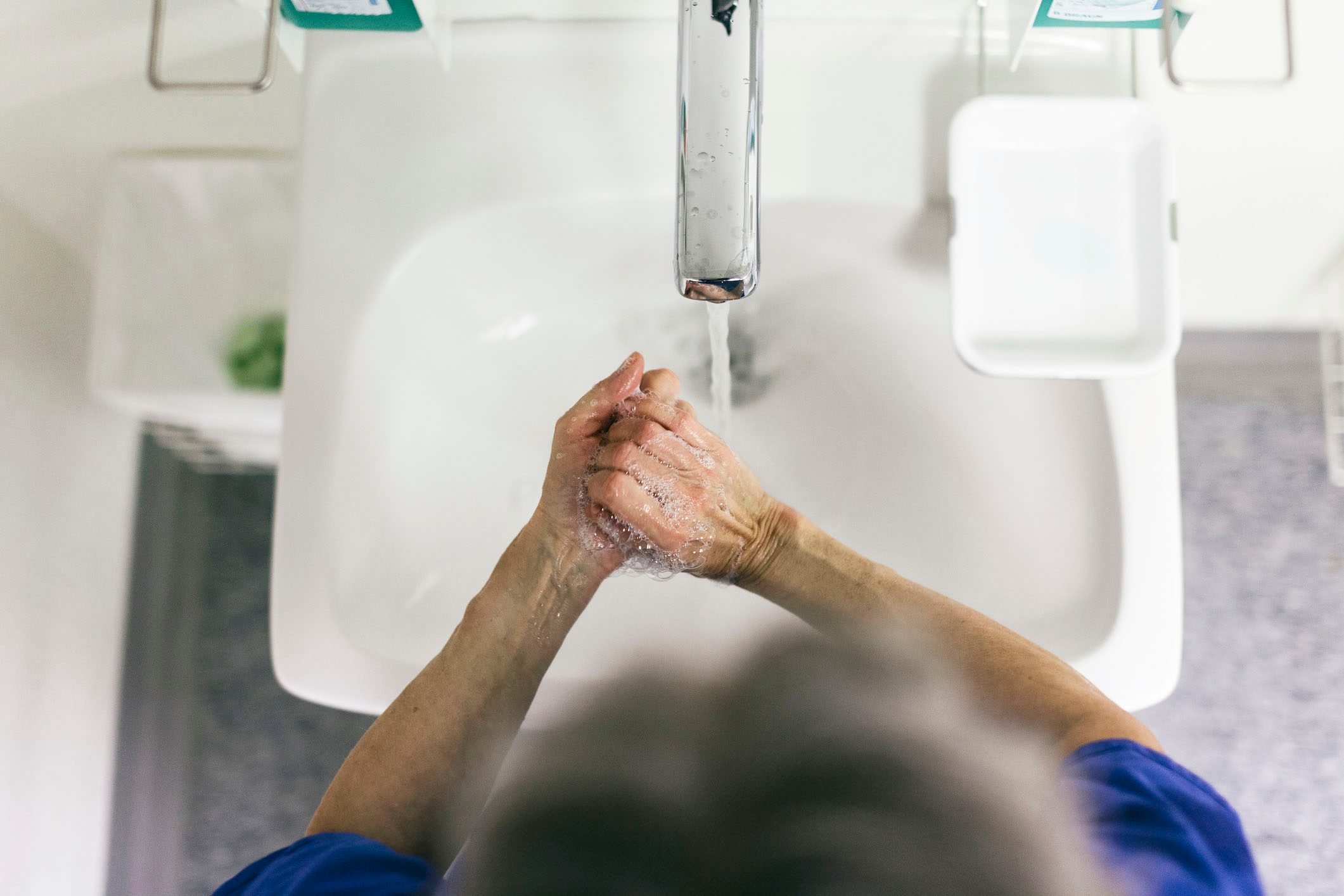
Better hygiene to reduce germ spread
Since the beginning of the pandemic, it’s been drilled into us—and more importantly, our kids—to take better care in keeping our germs to ourselves. “There has definitely been a raised consciousness about hygiene with this pandemic,” says Jen Caudle, DO, a family physician and associate professor at Rowan University. “This is a great thing because proper hygiene not only helps us with COVID but with other infectious diseases such as the flu,” she says. “The hope is that our increased handwashing, hand sanitizing, covering coughs and sneezes will become more commonplace and continue to help us in the future.” Hygiene-consciousness will likely even inform the way we design public spaces, such as hands-free bathrooms and doors, and plexiglass at reception desks. You can prevent these 15 diseases just by washing your hands.

More telemedicine options for medical treatment
When you “see” your doctor virtually, you eliminate the need to have to go out—which can make it easier for time-crunched or disabled people to get the care they need, as well as reduce the spread of germs into the doctor’s office. “I’m a family physician and have been in practice for 12 years in an academic setting—before the pandemic I had never practiced via telemedicine,” Dr. Caudle says. “The pandemic has taught me so much about telemedicine and how it can be used to help patients. While telemedicine visits are not ideal for every patient or every health situation, it is very helpful and convenient for many patients. I think telemedicine will be around for a while, and this is a good thing because it increases options for health care providers and patients.” It’s one of the things that could stay virtual forever.
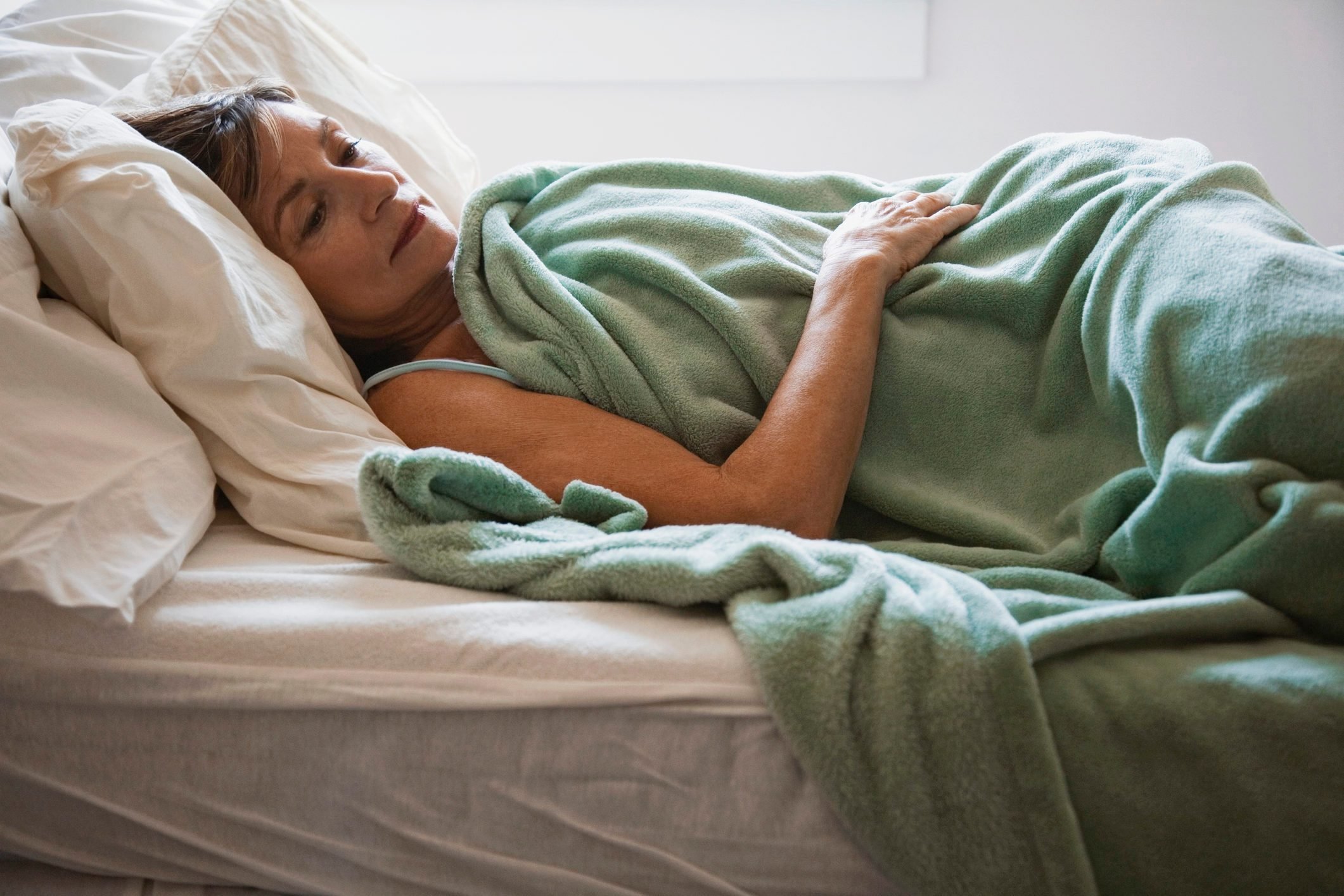
A recognition that sick days are important
Prior to the pandemic, staying home from work was often discouraged as a sign of laziness or weakness, but now, employers are recognizing how crucial taking sick days are for the health not only of that employee but for the company as a whole. “I feel that now, more than ever, companies recognize the importance of safeguarding the health and safety of their employees, and employees recognize the importance of this more and more as well,” Dr. Caudle says. “This is a good thing because we don’t want people to come to work when ill.” This recognition may even lead to more paid sick leave.
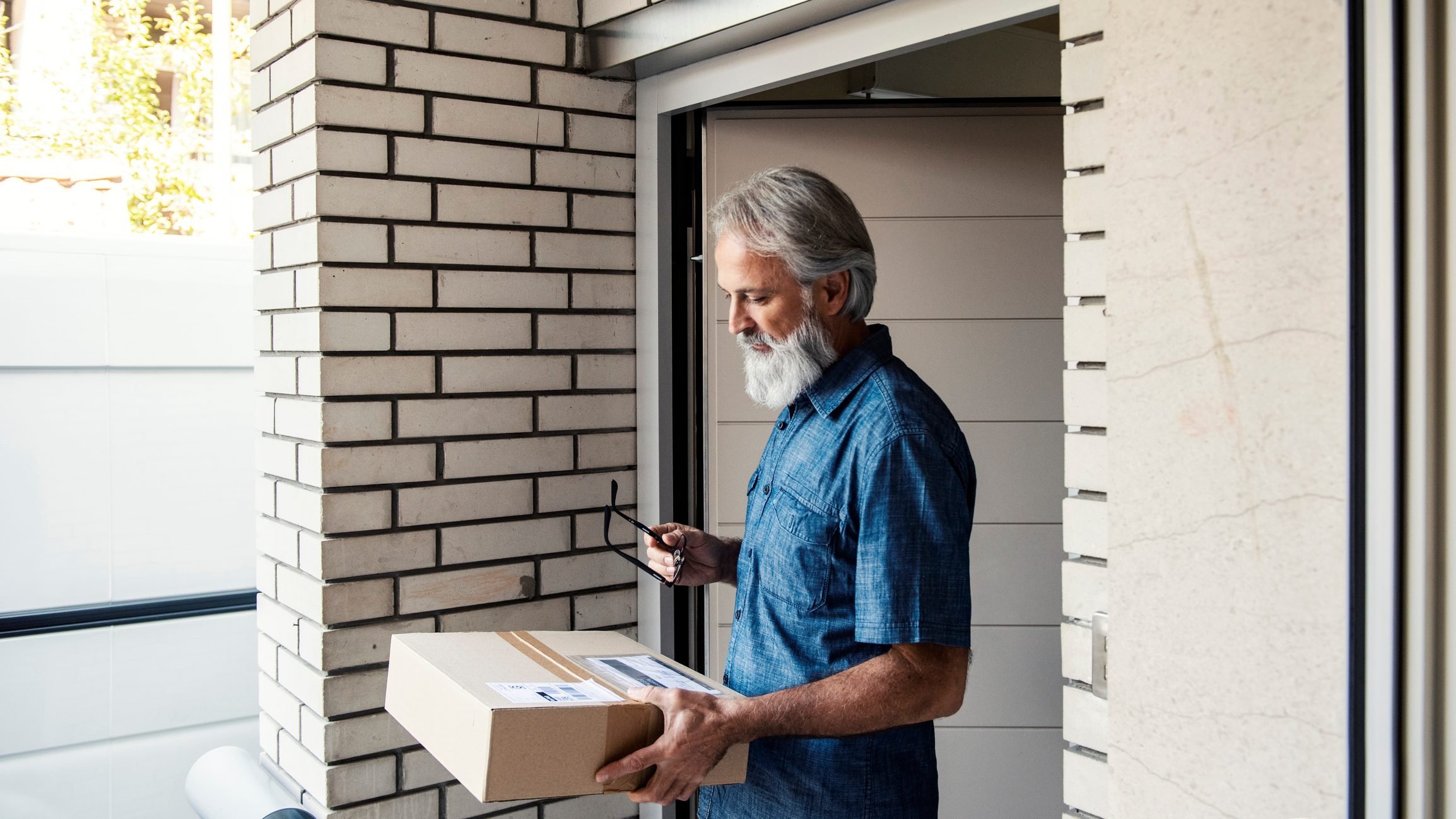
Businesses offering new services
Specifically, consumers will likely continue to benefit from the greater availability of online ordering, home delivery, and curbside pickup. “This has allowed businesses to make their products and services available in a more convenient, immediate, and price-sensitive way,” says Knauer. Such services make shopping and ordering out easier for time-strapped parents and the elderly, and might actually make them more likely to patronize businesses that offer this convenience. “While this has been a hard adjustment for many businesses, those that have been able to adapt to customers’ needs have been seeing much greater success than those that have not,” Knauer says.
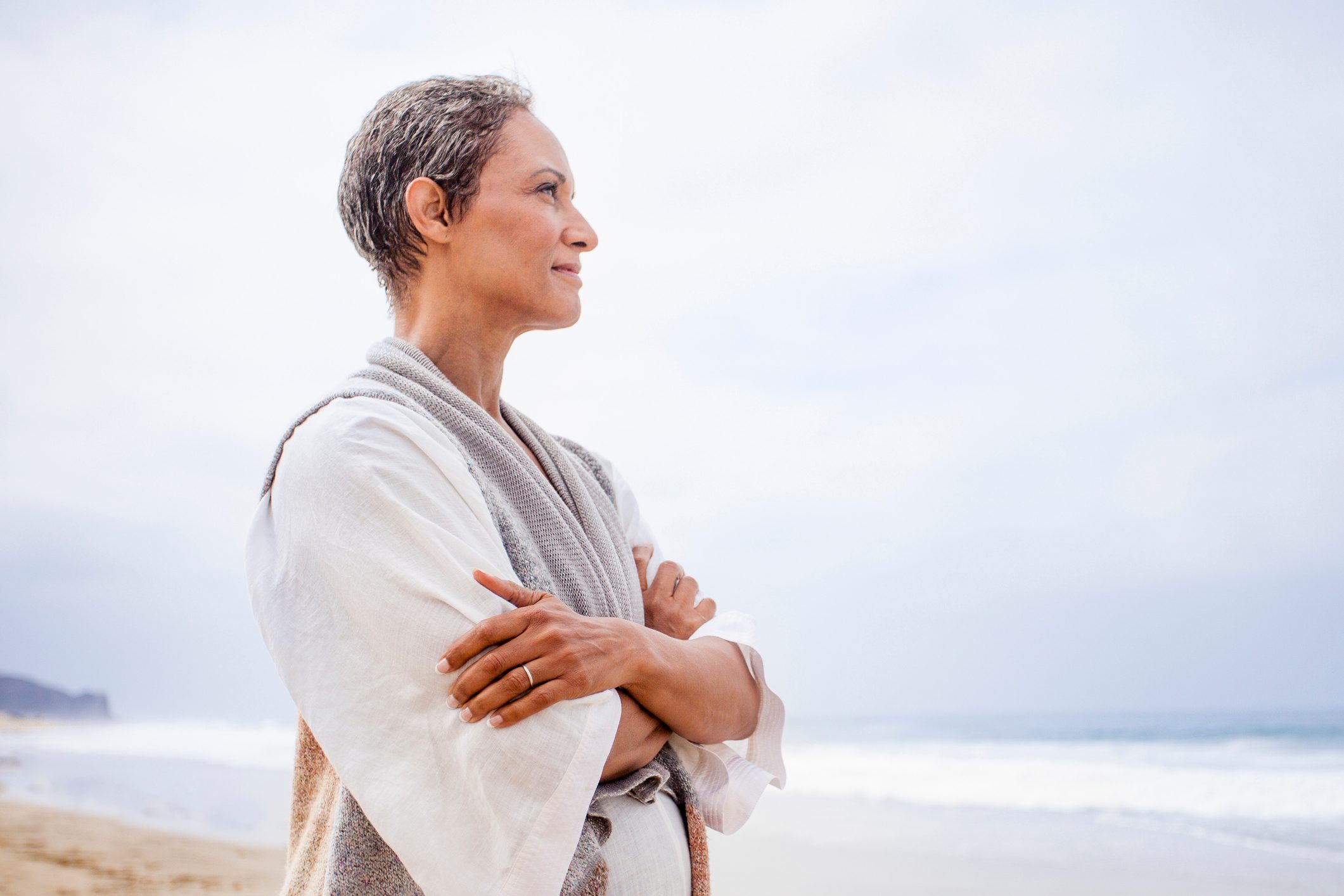
A greater sense of strength, resilience, and innovation
Going through a difficult situation can also show us how much we are capable of and how adaptable we can become. “I have seen evidence of this in my practice with individuals,” Bates says. “I have seen corporations changing their foundational rules to meet people where they are at, create support systems for mental health needs, and be far more flexible with employees around family needs, which is a huge step forward for the quality of life for the American family. We have teachers all over the country learning new technologies to be able to teach their students, grandmothers learning Zoom and Skype to be able to talk with their families, and an absolute glorious amount of inventions and innovations to help make our life in our homes more functional.” While some of these practices may be temporary, our newfound sense of resilience will remain.
For more on this developing situation, including how life might be different post-lockdown, see our comprehensive Coronavirus Guide.
Sources:
- Pew Research Center: “About half of Americans say their lives will remain changed in major ways when the pandemic is over”
- Josh Knauer, business strategist and co-founder of JumpScale
- Dave Nevogt, cofounder of Hubstaff
- CivicScience: “The State of Exercise During The Coronavirus Pandemic | Part 1”
- Barbara Stengel, PhD, professor emerita of secondary education at Vanderbilt University
- CDC.gov: “Health Equity Considerations and Racial and Ethnic Minority Groups”
- The New England Journal of Medicine: “Structural Racism, Social Risk Factors, and Covid-19 — A Dangerous Convergence for Black Americans”
- Sean Young, PhD, a medical geographer and assistant professor at the University of Arkansas for Medical Science
- Omer Rabin, managing director at property management startup Guesty
- Michele Bates, MSSW, co-founder and CEO of Transform Through Therapy
- Jen Caudle, DO, a family physician and associate professor at Rowan University
